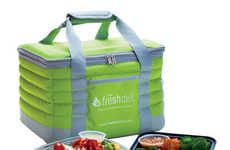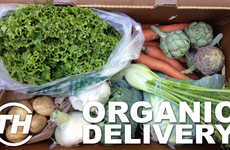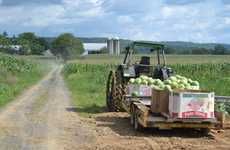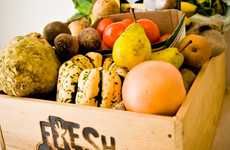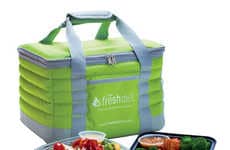



Fresh food is made more accessible with the use of online delivery services
Implications - Moving beyond the traditional farmer's market, organic retailers are turning to online platforms to bring goods straight to the consumer. Creating digital marketplaces and apps where consumers can purchase and subscribe to the delivery of fresh produce, local grocers are making organic, and often pricey, goods more accessible for the average consumer. This combines the ease of online technology with a need for more approachable forms of nutritional consumption.
Trend Themes
1. Online Organic Marketplaces - With people becoming more environmentally and health conscious, creating a digital marketplace where consumers can purchase and subscribe to the organic delivery of fresh produce is a disruptive innovation opportunity for grocery stores and farmers.
2. Fast Local Produce Delivery - Time-starved customers want local produce fast and easy. Developing a speedy delivery service (2-3 hours) of food items from a variety of local stores and shops could be a disruptive innovation opportunity in the grocery industry.
3. Sustainable Food Distribution - As people are becoming more environment-conscious, supporting a social enterprise that offers training and employment for underprivileged individuals could offer an excellent opportunity to demonstrate sustainable food distribution in the economy.
Industry Implications
1. Grocery Industry - As the COVID-19 pandemic has led to an increased interest in online shopping, online organic and local food delivery, along with fast grocery delivery services, could prove to be a game-changer in the grocery industry.
2. Agriculture Industry - Creating channels of communication and distribution with grocery stores can offer opportune connections between farmers and consumers, helping to establish more sustainable agriculture production.
3. Sustainability Industry - Creating a balance between sustainable food production and distribution can result in many opportunities for innovation within the sustainability industry, such as the use of zero-emission vehicles for delivery.
